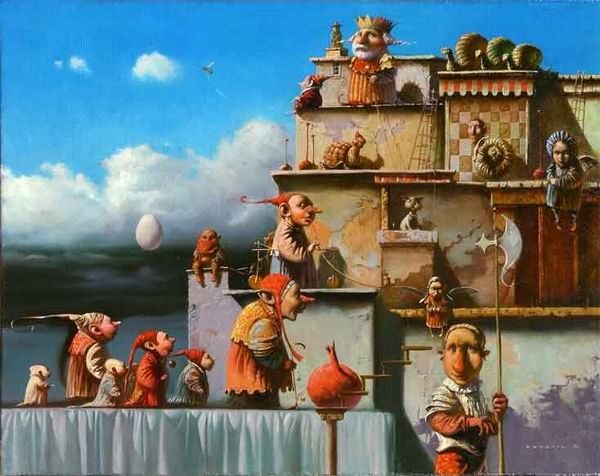
Can Systems Theory Shed a Better Light on How Chess Works?
Systems are everywhere. We are surrounded by a world of complex systems. From the microscopic level to the galaxies. To systems scientists, the world itself can be understood as one large system comprised of many smaller systems.
We ourselves are part of many systems (family, business connections, financial markets, football team we play in) and we also use them for living and pleasure (cells, cars, chess).
But what does knowing that systems exist out there means for us chess players?
Understanding how systems work in general terms, independent from the domain, knowing what concepts and principles describe and govern them, can make us more effective and be better at it. Through better instructional content and teaching methods for beginners, or more effective solutions for improvement, for instance. Ultimately, the knowledge of how chess works as a system may bring a better understanding of the game down at the individual level and bring us all more pleasure out of it.
How can we define a system?
One definition says, it is a totality of components in dynamic interaction.
Still another, a system is a group of interacting and interrelated members (entities, people, objects, processes, systems, chessmen) to produce some result.
I prefer the latter definition as it includes purpose. Every system provides a capability to satisfy a certain need or objective through the interconnectedness of its members.
How Does a System Work?
Well, this one is a much trickier to deal with. We all are part of a larger system, we also use them, but due to their complexity none of us really know how systems work. Paradoxically, very elementary rules and interactions between the members govern the lower levels of system. The simple parts interact in complex ways creating an emerging whole that exhibits behavior seemingly disconnected from its humble origins. And you, a chess player, you know what I'm talking about. Chess has so simple rules, yet it is "at once both a magical and dangerous world, where out of simple beginnings can emerge either a marvelous outcome or an awe-inspiring catastrophe."
 photo by Ambra
photo by Ambra
.
How to Manage System's Emergent Complexity?
However, the organizational patterns and principles of how a system is organized and functions at higher level can't be derived from the laws that govern the lower levels and are beyond our comprehension.
How do we then navigate complexity? We are driven on to its antithesis, reductionism! We simplify! (read more about mental models here). In order for our brains to not explode, we have a simple built-in mental system (=a set of simple mental models, or concepts) that helps us dumb everything down to a manageable level. It reduces the phenomena under consideration to elementary elements in order to study in detail and understand the types of interaction that exist between them. The word system actually refers to a set of abstract interrelated entities that make our thinking about a problem more convenient.
Defining Chess as a Complex System
Whatever the Holy Grail of chess is supposed to be, we know this search for hidden system order must seek to emphasize the interactions and functional relationships of system components. This is exactly what Capablanca the Great said, the coordination of chessmen is the main chess principle throughout.
Ok then, let's get on the road to defining the basic conceptual system of chess. A very simple one. Yet the one that might improve our understanding of the game.
Note: The rules set boundaries outside of which we can't venture, of course. Yet they say nothing about how we should make use of them, or think during game! A theoretical system would.
Physics is mathematical not because we know so much about the physical world, but because we know so little; it is only its mathematical properties that we can discover.— Bertrand Russell
Next time, we are going to see what the Systems theory can tell us about the discoverable properties of chess.
The musings on the nature of chess, only at Roarrie's! Stay tuned.
.
.
